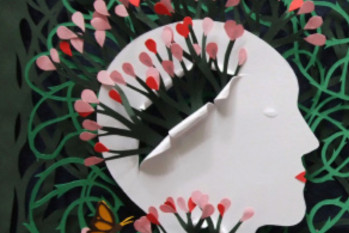LOOKING BACK AT JUDITH BULL’S school reports, it’s obvious she was smart. But once she found her adult ADHD diagnosis.
It’s also obvious she struggled to concentrate. “Every school report was the same,” she sighs. “I kept thinking if only I could try harder and focus. If only I could keep my mouth shut. If only I could fit in.”
Age and maturity didn’t improve the situation. She made impulsive business decisions that failed, interrupted people and blurted things out without thinking and then, two months short of her 50th birthday, she went to see a psychologist. “After the third session, she said, ‘Did you know you have ADHD?’ It was a light bulb moment. Finally, I could see a reason for my behaviour.”
Sydney-based Judith saw a psychiatrist and was prescribed Ritalin, which belongs to a class of drugs known as stimulants that can help people with ADHD stay focused. The resulting calm enabled her to put measures in place to improve her life and university studies. “I’ve learned to stay on task, keep my desk tidy, have my clothes ready. My life is now very regimented.”
Now 55, the adult ADHD diagnosis also enabled her to power through degrees in business management, accounting and IT. She’s planning a PhD on ADHD in the workplace and has become president of ADDults With ADHD, a charity dedicated to improving the lives of adults living with the condition.
ADHD, which stands for Attention Deficit Hyperactivity Disorder, has been a battlefield in the mental health arena, often dismissed as a behavioural issue rather than what it is – a neurodevelopmental disorder. It’s characterised by symptoms of inattention, impulsivity and sometimes hyperactivity. It can be managed, but there is no single known cause or cure.
Many other women, like Judith, find their adult ADHD diagnosis later in life. In sharing these stories we can bring greater awareness and achieve an earlier diagnosis for women in particular.

